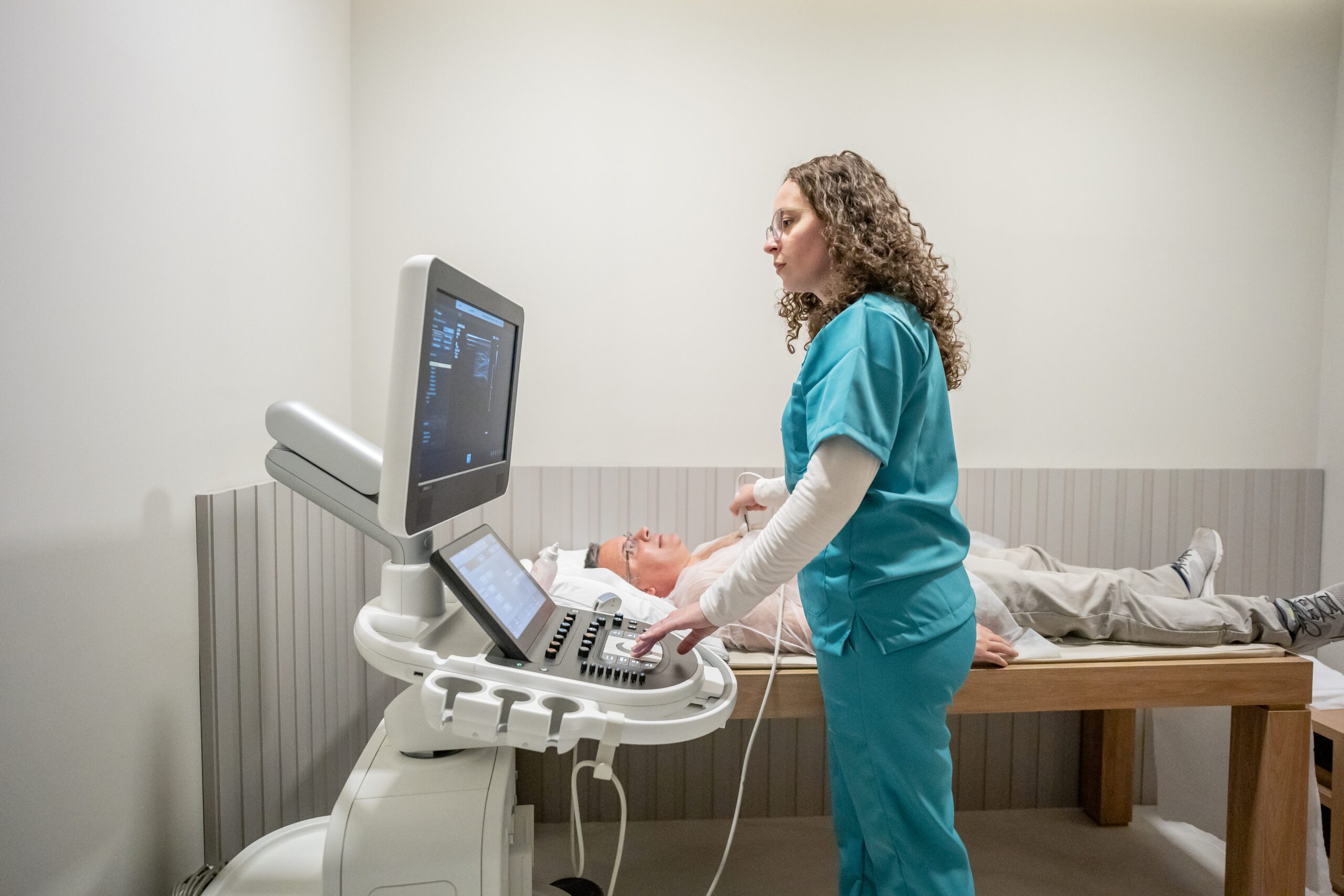Have you heard your upper level residents mention the term “fellowship,” but were too nervous to ask what a fellow doctor is?
In this post, we explore the world of training that exists after residency: medical fellowships. In short, a fellowship is an opportunity for physicians to further specialize and distinguish themselves by honing their skills and knowledge beyond training covered in residency.
There are various medical and surgical subspecialties that utilize fellowships and in many areas of the US and around the world, these fellowship trained subspecialists are highly sought after and compensated well.
Let’s elaborate on what it means to be a fellow physician, and how you can prepare yourself for this enriching experience starting as early as medical school.
Applying to residency soon and aren’t sure where to start? Download the FREE Residency Application Timeline to stay on track and make sure your top programs receive your very best residency application!
What is a fellowship?
A fellowship is an OPTIONAL postgraduate training program designed to provide further specialized education and clinical experience in a particular medical specialty or subspecialty beyond residency. I’ll list out some fellowship examples in what follows. The idea is that residency builds the foundation for trainees in a specialty such as otolaryngology to be competent ENT surgeons, while a fellowship allows those physicians to focus on a narrower field, such as rhinoplasty. Or if you prefer a medicine example, an internal medicine residency will produce proficient internist physicians, who can then pursue fellowship in various subspecialties such as oncology, gastroenterology, cardiology, or hematology. Each residency specialty has many fellowship options and fellowship programs typically last 1-3 years, depending on the specialty.
When do fellowships begin?
Typically fellowship training begins shortly after you graduate from your last year in residency. My colleague last year finished residency in Texas in June and then drove herself and all of her belongings to her new apartment in Michigan in order to start fellowship the first week of July.
Does everyone get an opportunity for fellowship?
It’s important to know that just like in residency, not everyone who applies will be offered a fellowship as there are limited slots, so naturally fellowship spots are coveted and competitive.Recent data showed there were 13,586 active applicants (those submitting certified rank order lists of programs) who applied for only 12,571 fellowship positions, which were offered by 5,436 programs.
What’s different about being a fellow?
As a fellow, you have more responsibility for patient care in the specialty of your choice. You’ll still have supervisors (attending physicians) but the idea is to provide you with specialized training, so you’ll be given much more responsibility than you had as a resident.
How long is a medical fellowship?
There is no set length for a fellowship. The duration differs depending on your specialty (usually 1-3 years) but in general, surgical fellowships typically require longer commitments. Let me share some examples to help illustrate the variations.You can be a resident who finishes a general internal medicine residency (three years) and proceed to practice as a general internist with no additional fellowship. But if you want to specialize in adolescent medicine, focusing on the physical, psychological, social development, sexual development, and disease processes of adolescents/ young adults, then that takes an additional one or two years of fellowship training in adolescent medicine (depending on the program). During your fellowship years, you’ll practice clinical medicine and train in your specialized field, participating in not only clinical practice but also sharing responsibilities on research projects, didactic teaching, lectures, and presentations. Perhaps you don’t like teenagers as patients, but you’ve always been interested in infectious disease, solving the mysteries of various contagions in the era of antibiotic resistance and worldwide epidemics. An ID fellowship will typically take you two years to complete.
What about surgery fellowships?
Let’s say you really want to spend your time in the operating room, and plan to finish five years of general surgery residency. Then, you discover a niche market as an abdominal organ transplant surgeon. That fellowship is two or three years.To contrast, maybe a colleague has their eyes set on orthopedic surgery, but wants to subspecialize in order to operate on the thing surgeons value most. It’ll require an extra year for a hand surgery fellowship.
You see, there is no set length, but typical fellowships last anywhere from 1-3 years. You can even finish multiple fellowships like my colleague, who completed her family medicine residency (three years) and went on to finish a geriatric fellowship and a wound care fellowship (one year each). She finished residency training and two fellowships in the span of five years, which was just enough time for her husband to complete his ENT training.
What are the requirements for fellowship?
Medical fellowships typically have requirements that look similar to residency, which will further vary depending on the specialty and the institution offering the fellowship. Here are some common requirements:
Medical Degree
Applicants must have completed medical school and obtained a medical degree (MD or DO).
Residency Completion
Most fellowships require completion of an ACGME accredited residency program in the relevant specialty. For example, if you’re applying for a cardiology fellowship, you need to have completed a residency in internal medicine.
Certification/Licensure
Fellowships require board certification in the specialty or eligibility for board certification. You must be eligible for board certification at the start of fellowship (usually early July). This often involves passing the relevant board exams. Licensure to practice medicine in the relevant jurisdiction may also be required. Completing all United States Medical Licensing Examination (USMLE/COMLEX) requirements is a given.
Application and Letters of Recommendation
Applicants typically need to complete a fellowship application and interview for the spot, similar to interviewing for residency positions. The application includes a CV, letters of recommendation, and a personal statement . More info can be found on the NRMP website.
Interview
Fellowship programs require applicants to interview with faculty members or a selection committee. This interview allows the program to assess the applicant’s academic accomplishments, interpersonal skills, research and career interests, and overall fit for the program.
The more prestigious and competitive fellowships ask their applicants for more. This is where having a strong academic background and an excellent performance in a clinical setting can be beneficial. It also doesn’t hurt to have first authorships on research publications and presentations or be a dual degree grad (MD/PHD, MD/JD, MD/MPH, MD/MBA etc.).
What’s the process to apply?
Residents typically apply for fellowship in their final year of residency. The process is analogous to the residency application process from med school as it uses the Electronic Residency Application Service (ERAS).Fellowship programs receive your application, review the materials, and then send out interview invites to the worthy candidates.
What types of fellowships can I apply to?
Fellowships come in various forms, catering to a wide range of medical interests and career goals. There are:
Clinical Medical Fellowships
These focus on providing hands-on experience in patient care within a specific subspecialty. For example, a clinical fellowship in pediatric cardiology would involve diagnosing and treating children with heart conditions and it comes after completing a pediatric residency.
Clinical Surgical Fellowships
Surgeons looking to specialize further may pursue surgical fellowships, which offer advanced training in complex procedures within specialties like glaucoma or oculoplastics for ophthalmology, or rhinology or head and neck oncology for ENT.
Other Fellowship Options
Other, nuanced options include research fellowships geared towards physicians interested in advancing medical knowledge through research and clinical trials. These fellowships emphasize laboratory or patient care research in areas such as genetics, epidemiology, or drug development.
Another less common one I’ve seen is the Global Health Fellowship, which can be ideal for those passionate about addressing healthcare disparities on a global scale. These fellowships provide opportunities to work in underserved communities worldwide, focusing on public health initiatives and disease prevention in areas such as Africa, South America, and Asia.
Who should consider a fellowship?
Fellowships are often pursued by medical professionals who want to further specialize in a particular area of medicine. These individuals may be nearing the end of their residency or might be mid-career, established physicians who have been practicing for some time and choose to pursue fellowships to transition into a new subspecialty or to update their skills in their current specialty. Others interested in conducting clinical research may pursue fellowships to gain the necessary skills and experience in study design, data analysis, and publication.Some other reasons to pursue a fellowship include:
Specialization
Fellowships allow you to gain specialized knowledge and skills in a particular area of medicine. This expertise can set you apart in your field and open up opportunities for advanced practice, research, and leadership roles.
Career Advancement
Completing a fellowship can enhance your career prospects by making you more competitive for desirable positions, such as academic appointments, leadership roles within healthcare organizations, or positions in prestigious hospitals or research institutions. Fellowship- trained physicians are often highly sought after and compensated better than their peers.
Research Opportunities
Many fellowships offer opportunities for research, which can be invaluable for advancing medical knowledge, publishing papers, and establishing yourself as an expert in your field.
Patient Care
By specializing in a particular area of medicine through a fellowship, you can provide more specialized and effective care to your patients, potentially improving outcomes and quality of life for those you treat.
Preparing for a Fellowship During Medical School
While the journey to fellowship begins in medical school, there are several proactive steps you can take to position yourself as a strong candidate, such as:
1. Explore diverse specialties
Use your clinical rotations to gain exposure to various medical specialties and subspecialties. Take note of what interests you the most.
2. Engage in research
Participate in research projects or scholarly activities related to your desired field to gain experience and demonstrate your commitment to advancing medical knowledge. Garnishing your medical CV with first authorships, presentations, and conference attendance can only help your career, regardless of your decision to pursue a fellowship.
3. Seek mentorship
Build relationships with faculty members and practicing physicians in your chosen specialty. Their guidance and support can be invaluable as you navigate your career path. They can also write a personalized letter of recommendation that can make all the difference.
4. Get involved
Join relevant medical organizations, volunteer in healthcare settings, and pursue leadership roles to demonstrate your passion for your chosen field and your commitment to making a difference.
5. Practice your interviewing and people skills
Your fellowship interview is a vital part of your application. You’ll need to showcase your capabilities, passion for the field, and people skills. After all, medicine is a team sport and no one wants to work alongside an unprofessional fellow.
Further Reading
Opting for a fellowship enables you to specialize even further, if that’s your aspiration. Moreover, for highly specialized fields, pursuing a fellowship may be the sole pathway to acquire the necessary training. Fellowships provide in-depth, hands-on experience, allowing physicians to become experts in their chosen field and contribute to advancements in patient care, research, and medical education.
While not mandatory, fellowships can provide new opportunities for career advancement for those seeking to deepen their knowledge and develop their skills beyond what’s covered in residency. So, as you navigate your medical journey, keep in mind these tips—they could serve as the pivotal step towards realizing your aspirations of making a significant impact in medicine.
After all, medical school is the perfect time to ask yourself, “What is a fellow doctor? And is it right for me?” If the answers we’ve provided here sound right for you, go for it!
Looking for more (free!) tips to set yourself up for residency and beyond? Check out these other posts from Blueprint tutors on the Med School blog:






